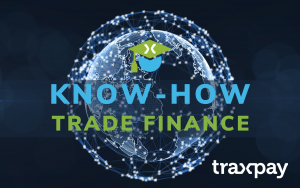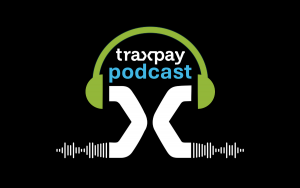Global supply chains continue to dominate world trade. According to an Equant Analytics report published in Global Trade Review, European supply chains are leading the world with 49% of pharmaceuticals, 42% of aerospace, and 49% of shipping trade being conducted in the region. With a growing reliance on global supply chains, it is little wonder that more and more corporates are turning to supply chain finance (SCF) programs to optimize their working capital and better support growth objectives.
This trend is borne out in the SCF Barometer survey from PwC and the Supply Chain Finance Community, which surveyed 62 corporates across Europe. The survey found that 84% of respondents who don’t currently have a SCF program are interested in implementing one.
As a vital link in any healthy supply chain, suppliers have a vested interest in understanding how a SCF program can benefit their business. Awareness is key to encouraging participation. Both buyers and suppliers stand to gain from having a robust knowledge of how these programs can strengthen the entire supply chain.
What’s In It For Suppliers?
When a supplier hears from a buyer or bank about enrolling in a SCF program, the first thing that comes to mind is — what’s in it for me? How will this program impact my business and ultimately, will I benefit?
The reality is that many of today’s SCF programs have tremendous upside for suppliers. From reducing Days-Sales-Outstanding (DSO) and bringing in much needed capital faster, to deepening buyer relationships by accepting appropriate invoice discounts for goods delivered, participating in a trade finance program can be a very beneficial business tool.
Typically, buyers work with their banking or FinTech partner to offer suppliers one of two early payment program options. Using their own cash, buyers can fund a dynamic discount program, or use third-party funding to offer a reverse factoring program.
As a third-party provider of supply chain finance solutions, Traxpay is a full-service provider for corporates, driving onboarding — from assisting in the development of a strategy by doing a spend file analysis, to adding third-party numbers, tiering suppliers to make the best offer for both buyers and suppliers, through to final enrollment — and ensuring that suppliers have a complete understanding of how the solution works for them and how they will benefit.
SCF Synergy: When Banks Partner with FinTechs
Banks have long offered trade finance programs, but as FinTechs have entered the marketplace, the opportunity for collaboration between the two has opened the door to more robust solutions. These data-driven SCF programs provide important advantages for buyers and suppliers alike. FinTechs, such as Traxpay, are partnering to make bank-offered trade finance programs easier to implement, and therefore more attractive to suppliers.
Global Finance reported that 51% of companies surveyed in PwC’s 2017 SCF Barometer use dynamic discounting. Traxpay helps structure SCF programs that are sustainable for suppliers, enabling them to obtain an early payment at a favorable rate.
Another option for suppliers is factoring. Factoring allows suppliers to sell their invoices to a bank or third-party for a fee, enabling them to more rapidly gain access to much-needed working capital. Among the stumbling blocks of factoring has been the requirement by some third-parties that suppliers contract for an entire year or longer, even when the supplier’s needs are shorter. Additionally, these third-party providers can require that suppliers must submit a large number of their receivable invoices for factoring. Meeting this requirement can be challenging.
The Traxpay platform is currently evolving and will soon include factoring. This will create a safer environment for suppliers to factor invoices. Beside invoices covered by any existing buyer program suppliers participate in, Traxpay will also offer ad-hoc factoring, which will allow suppliers to factor only those invoices that meet their immediate needs. The factoring company will be obliged to abide by the platform rules and finance only those specific invoices. When Traxpay partners with banks, suppliers can rest assured the factoring company being used has met the highest criteria.
Traxpay’s factoring program will expand on existing SCF programs, each of which is suitable for different suppliers with different needs and objectives.
As global supply chains continue to grow, suppliers can take advantage of new SCF programs that will benefit their business. As banks and FinTechs, such as Traxpay, collaborate to introduce better, more versatile SCF solutions, suppliers have an opportunity to work with buyers to ensure both ends of the supply chain are healthy and happy.
BY MATTHEW HATTON
Matthew Hatton is Head of Business Development for Traxpay. He is a global payment and trade finance expert with more than 30 years of experience supporting financial institutions and FinTechs.
BY STEPHAN KNAUF
Stephan Knauf is Head of Product for Traxpay. He has extensive experience in trade finance and has held senior positions in sales, product and relationship management with FinTechs and global financial services companies.



